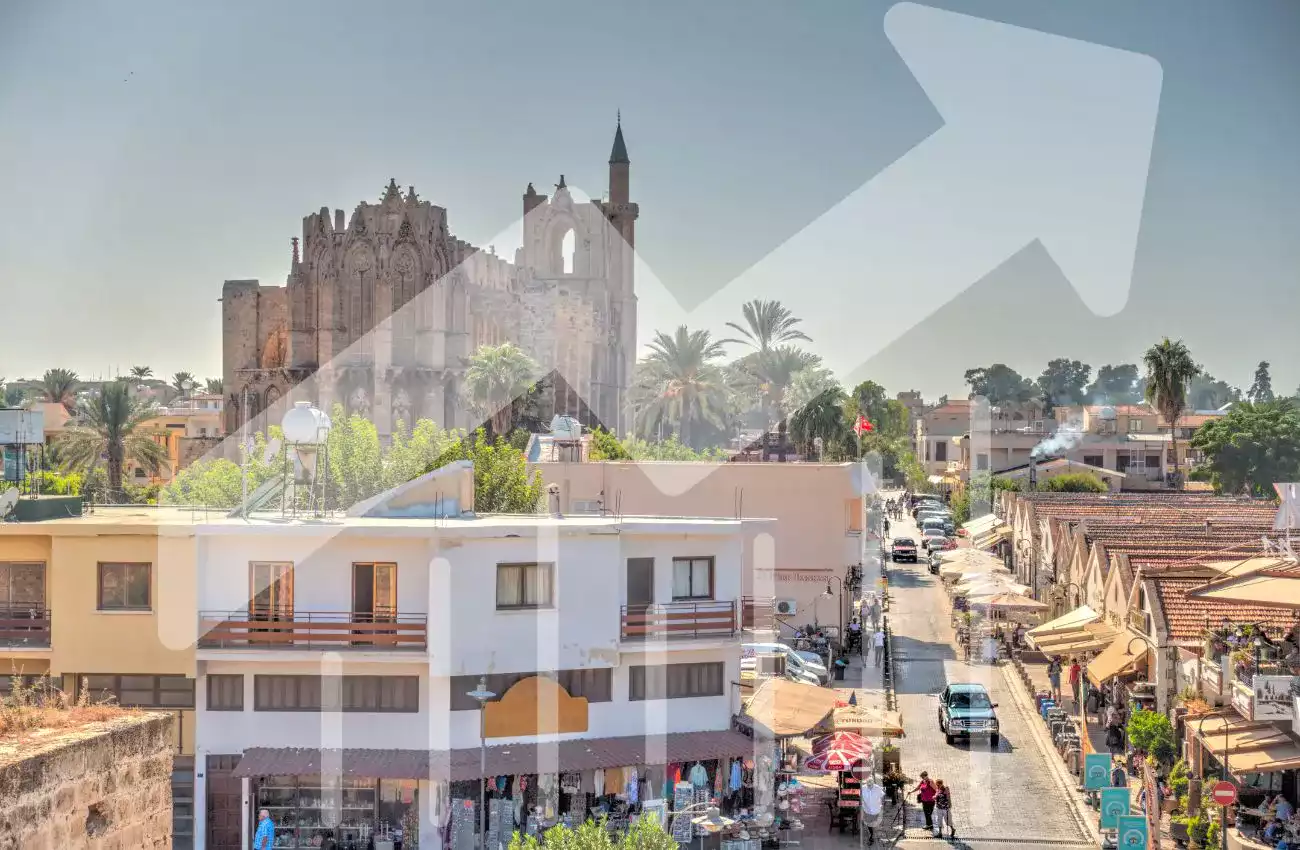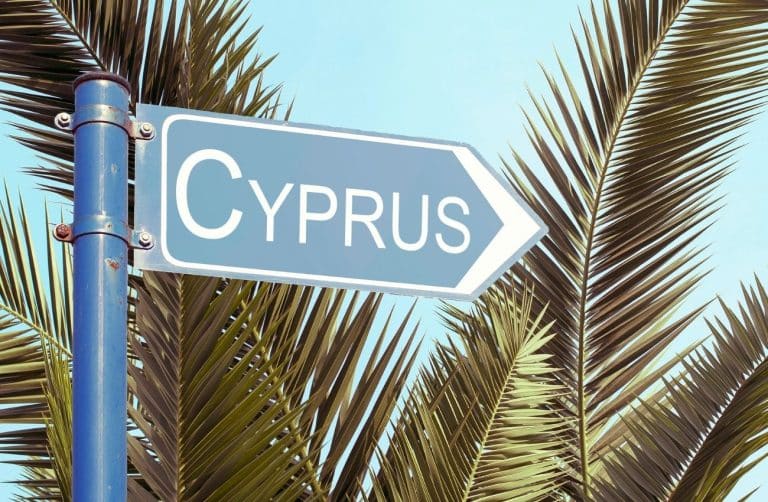Northern Cyprus, officially known as the Turkish Republic of Northern Cyprus (TRNC), occupies the northern third of the island of Cyprus. While it remains internationally recognized only by Turkey, Northern Cyprus has developed its own distinct economic and cultural identity since the events of 1974, when the island was divided into the Greek Cypriot south and Turkish Cypriot north. Northern Cyprus has a vibrant, evolving economy that relies on various sectors, including tourism, higher education, real estate, and agriculture. At the same time, the region maintains a rich cultural landscape shaped by its history, blending Turkish, Mediterranean, and Middle Eastern influences.
As Northern Cyprus has opened up to foreign real estate buyers, attitudes toward international investors have become a significant aspect of the country’s social and economic dynamics. This article explores the economic and cultural structure of Northern Cyprus and the reception of foreign nationals purchasing property in the region.
Economic Structure of Northern Cyprus
Key Sectors of the Economy
- Tourism Tourism is a cornerstone of Northern Cyprus’ economy, contributing significantly to the country’s GDP. Its Mediterranean climate, beautiful beaches, historical sites, and relatively undeveloped landscapes attract visitors from across Europe and the Middle East. Towns such as Kyrenia (Girne) and Famagusta (Gazimağusa) are popular tourist destinations, known for their scenic harbors, ancient castles, and proximity to world-renowned beaches like Golden Beach on the Karpaz Peninsula.
Tourism in Northern Cyprus is relatively affordable compared to the southern part of the island, making it an attractive destination for budget-conscious travelers. Additionally, the TRNC government has worked to attract tourists from countries like Turkey, the UK, Germany, and Russia by offering package tours and incentives to hotels and resorts. The influx of foreign visitors has not only boosted the hospitality industry but also stimulated the real estate market, as many tourists later return as property buyers.
- Higher Education Another critical pillar of the Northern Cypriot economy is the education sector. The TRNC has established itself as a hub for higher education, with several internationally recognized universities, including Eastern Mediterranean University (EMU) in Famagusta and Near East University (NEU) in Nicosia. These institutions attract thousands of students from Turkey, Africa, the Middle East, and Europe. Many of these students choose to remain in Northern Cyprus after graduation, either by seeking employment or investing in property, further contributing to the economy.
- Real Estate and Construction Real estate is a booming sector in Northern Cyprus, driven in large part by foreign buyers. The region’s relatively low property prices, favorable climate, and relaxed lifestyle have attracted investors and retirees from countries like the UK, Russia, Scandinavia, and, more recently, China. Real estate development, especially in coastal areas such as Kyrenia and Famagusta, has transformed parts of Northern Cyprus into modern, high-end residential and tourist zones.
The government’s policies, which include tax incentives for foreign buyers and streamlined procedures for property acquisition, have made Northern Cyprus an attractive destination for real estate investment. However, legal complexities regarding property ownership, especially land owned before 1974, can sometimes pose challenges for foreign buyers. These issues are usually resolved through careful legal counsel and official agreements between the government and foreign investors.
- Agriculture Agriculture remains a traditional yet vital sector of Northern Cyprus’ economy. The region’s fertile plains and Mediterranean climate make it ideal for growing citrus fruits, olives, and various vegetables. Livestock farming, especially sheep and goats, is also prominent, and the production of halloumi (known locally as hellim) is a significant export.
Though agriculture no longer dominates the economy as it once did, it still plays an essential role, particularly in providing employment in rural areas and sustaining Northern Cyprus’ self-sufficiency in certain food products.
Economic Challenges
Despite the growth in tourism, education, and real estate, Northern Cyprus faces significant economic challenges, primarily due to its international isolation. The TRNC’s unrecognized status limits its ability to engage in international trade and financial markets. As a result, the country relies heavily on Turkey for economic assistance, including direct financial aid and infrastructural investments.
Inflation and unemployment remain concerns, particularly given the global economic fluctuations that affect Turkey, Northern Cyprus’ primary trading partner. Additionally, the ongoing division of Cyprus and the unresolved political situation create uncertainty that impacts long-term economic planning.
Cultural Landscape of Northern Cyprus
The cultural identity of Northern Cyprus is shaped by a blend of Turkish, Mediterranean, and Middle Eastern influences, with strong ties to both the island’s historical roots and its Turkish heritage.
Language and Religion
Turkish is the official language of Northern Cyprus, but many residents, particularly in urban areas and the tourism sector, also speak English. This linguistic duality reflects both the region’s close ties to Turkey and its orientation toward international visitors and investors.
The majority of the population is Muslim, and the cultural practices of Northern Cyprus reflect this, with mosques, religious festivals, and traditions playing a significant role in daily life. However, Northern Cyprus is known for its secular approach to governance and lifestyle. The region’s multicultural history, which includes influences from the Byzantine, Lusignan, Venetian, and Ottoman periods, is evident in its religious and architectural diversity.
Festivals and Traditions
Cultural festivals celebrating Northern Cyprus’ heritage and traditions are common throughout the year. These include the Girne Cultural Festival, which showcases traditional music, dance, and crafts, as well as olive and orange festivals that celebrate the region’s agricultural products.
The Mevlevi Order, commonly known as the Whirling Dervishes, also has a historical presence in Northern Cyprus. Their performances and religious practices are part of the island’s cultural fabric, offering a glimpse into the spiritual life that continues to influence modern Cypriot society.
Cuisine
Northern Cypriot cuisine is a reflection of its diverse cultural influences. Dishes like meze (a collection of small dishes), kebabs, and hellim (halloumi cheese) are staples of the local diet. The island’s position in the Mediterranean ensures a diet rich in fresh vegetables, fish, and olive oil. The food culture in Northern Cyprus is a central part of its identity and is often celebrated at local markets, festivals, and restaurants.
Attitudes Toward Foreign Homebuyers
The real estate boom in Northern Cyprus has attracted a wide range of foreign nationals, including British, Russian, Scandinavian, and Middle Eastern buyers, who have contributed to the growth of the property market. Foreign interest in Northern Cypriot property is largely driven by the region’s affordable prices, attractive climate, and scenic landscapes. Coastal towns like Kyrenia and Famagusta, as well as more remote, picturesque areas like the Karpaz Peninsula, have become prime locations for holiday homes and retirement properties.
Government Policies and Legal Considerations
The TRNC government has generally been welcoming toward foreign buyers, offering tax incentives and relatively straightforward procedures for property acquisition. However, there are some legal complexities related to property ownership, particularly regarding land and homes that were abandoned by Greek Cypriots following the division of the island in 1974. These legal issues can sometimes lead to disputes, although the Northern Cypriot government has taken steps to resolve property ownership issues through compensation and legal frameworks designed to protect both local and foreign investors.
Local Attitudes
Local attitudes toward foreign homebuyers are generally positive, particularly in areas where the real estate market has led to economic growth and increased employment. Many Northern Cypriots view the influx of foreign buyers as an opportunity to boost tourism, improve local infrastructure, and create a more cosmopolitan environment.
In towns like Kyrenia and Famagusta, where a significant portion of the population consists of expatriates and foreign investors, local businesses have adapted to cater to an international clientele, offering services in multiple languages and creating a welcoming atmosphere for newcomers. The presence of foreign nationals has also contributed to cultural exchange, with expatriates introducing their own traditions and lifestyles into Northern Cypriot society.
However, as with any country experiencing rapid changes in its demographic and economic landscape, there are occasional concerns about the impact of foreign ownership on property prices and local communities. Some residents worry that the influx of foreign buyers could drive up property prices, making it more difficult for locals to afford homes. Despite these concerns, the overall attitude toward foreign homebuyers remains positive, particularly as the government continues to promote foreign investment as a key part of its economic strategy.
Conclusion
Northern Cyprus is a region with a rich cultural heritage and a diverse, growing economy. Tourism, higher education, and real estate are key sectors driving the economy, with foreign investment playing an increasingly significant role in shaping the country’s future. The cultural landscape of Northern Cyprus reflects its historical influences, blending Turkish, Mediterranean, and Middle Eastern traditions.
Foreign homebuyers, particularly from Europe, Russia, and the Middle East, have been welcomed as an integral part of the TRNC’s economic strategy. While there are legal complexities related to property ownership, the government has worked to resolve these issues and create an environment that encourages investment. As Northern Cyprus continues to evolve, the presence of international property buyers will likely remain a key component of its economic and cultural development.





